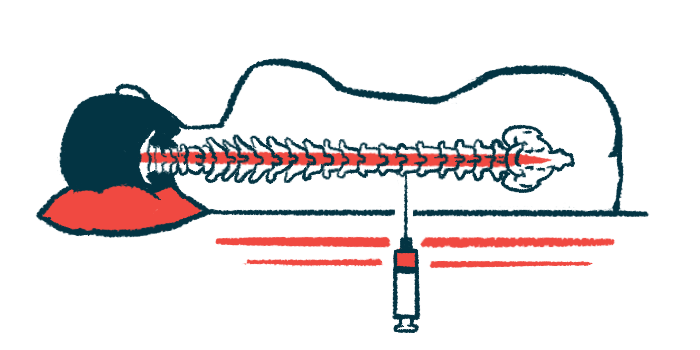9 of 10 NurOwn-treated ALS patients surpass five-year survival
Median survival time just less than seven years after the onset of symptoms

Nine out of 10 people with amyotrophic lateral sclerosis (ALS) who received the experimental cell therapy NurOwn (debamestrocel) in an expanded access program (EAP) following a placebo-controlled Phase 3 trial survived for at least five years after the onset of their symptoms.
That’s according to data announced by NurOwn’s developer Brainstorm Cell Therapeutics, which reports that NurOwn may have improved patients’ survival odds as only about 10% of people with ALS survive five years after symptoms emerge.
“The fact that 9 out of 10 EAP participants surpassed five years of survival from first symptom — in contrast with the very modest expected survival pattern typically seen in ALS — represents a clinically meaningful observation,” Bob Dagher, MD, Brainstorm’s chief medical officer, said in a company press release.
Median survival time for these 10 patients was just shy of seven years after the onset of symptoms and “6 out of 10 patients are still alive, even post-seven years from symptom onset,” Dagher said.
Earlier EAP data showed that median survival time for the 10 participants was already significantly better than that seen for an external patient control group who participated in previous late-stage trials. At the time of that analysis, EAP participants had lived for nearly two years — about five months longer than the matched controls.
NurOwn involves collecting a patient’s mesenchymal stem cells, which are specialized cells that can replicate indefinitely and mature into other cell types, and engineering them to produce signaling molecules that promote the survival of nerve cells. The modified cells are then injected into the fluid around the spinal cord to produce the signaling molecules near nerves damaged by ALS, the aim being to slow disease progression.
‘Survival benefits’ observed in EAP
The 10 EAP participants had previously completed a seven-month Phase 3 clinical trial (NCT03280056) that failed to meet its goal of showing that NurOwn was superior to a placebo at slowing ALS progression.
After the trial, six patients who’d been treated with NurOwn and four who’d received the placebo chose to enter the EAP, where all are accessing the experimental therapy outside of clinical trials. The new EAP results strongly suggest it may be associated with survival benefits, with 90% of the participants living beyond five years, and 60% still alive after more than seven years.
The single death in the EAP group “occurred following elective euthanasia,” the release stated.
“These survival data provide encouraging real-world insights into the long-term experience of ALS patients treated with NurOwn under expanded access,” said Chaim Lebovits, president and CEO of Brainstorm.
Even though the Phase 3 trial failed to meet its goal, Brainstorm asked the U.S. Food and Drug Administration (FDA) to approve NurOwn based on the available data. The company argued that the scale used to measure functional decline in the study wasn’t able to detect changes in people with advanced disease. The FDA didn’t find evidence of such problems, however, and after an advisory committee voted there weren’t enough data to support the therapy’s efficacy, Brainstorm withdrew its application.
After further discussions with the FDA, the company decided to launch a Phase 3b trial called ENDURANCE study (NCT06973629) that will test NurOwn against a placebo in about 200 people with mild to moderate ALS. Those completing the placebo-controlled portion will have the option to enter its open-label extension, where all will receive NurOwn over a long period. According to Brainstorm, the new data from the EAP support the Phase 3b trial.
“We believe these findings add further evidence to support the upcoming Phase 3b clinical trial of NurOwn,” Lebovits said. “Our goal remains to generate high-quality and conclusive data to demonstrate the benefit of NurOwn in people living with ALS.”







